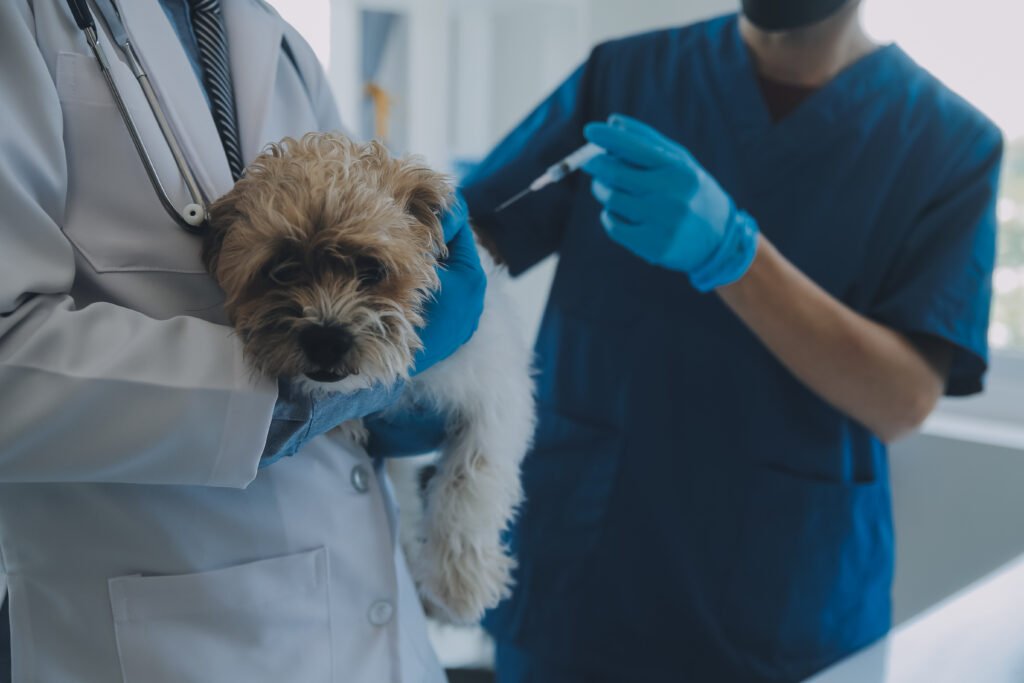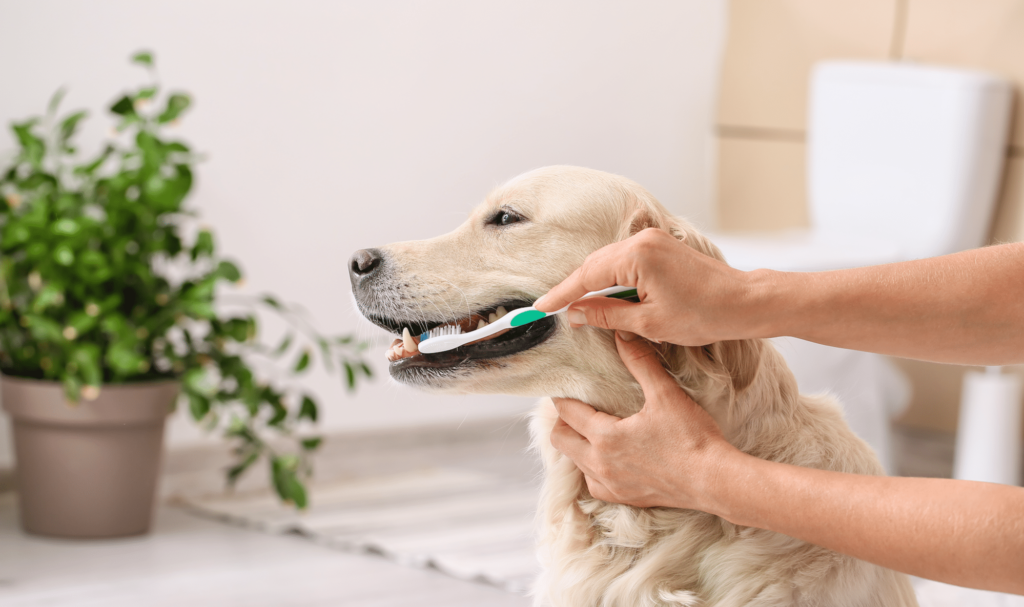Every dog owner dreams of a long, healthy life for their furry companion. Fortunately, with the right daily habits and care, you can significantly improve your dog’s well-being and extend their lifespan. From proper nutrition to mental stimulation, here are 10 actionable tips to keep your dog happy, healthy, and thriving for years to come.
1. Feed a Balanced, High-Quality Diet

Why it matters:
Nutrition is the foundation of your dog’s health. Feeding your dog a diet rich in quality protein, essential fatty acids, and vital nutrients supports everything from immune health to coat quality.
Tip:
Look for high quality dog foods that list real meat as the first ingredient and avoid artificial fillers. For dogs with sensitivities, vet-formulated diets options may be ideal. A well-balanced diet sets the stage for your dog’s long-term vitality and energy.
2. Keep Them at a Healthy Weight

Why it matters:
Obesity is one of the leading causes of preventable diseases in dogs, including joint issues, diabetes, and heart problems.
Tip:
Regularly check your dog’s body weight condition and consult your vet about the ideal weight. Avoid overfeeding and limit table scraps and high-calorie treats. Maintaining an ideal weight greatly reduces the risk of chronic conditions and enhances your dog’s quality of life.
Concerned about weight gain? Read : Dog Gained Weight Suddenly? Causes & How to Fix It Fast! for quick, vet-informed advice.
3. Prioritize Daily Exercise

Why it matters:
Exercise helps maintain a healthy weight, improves cardiovascular health, and prevents behavioral problems linked to boredom and excess energy.
Tip:
Tailor activities to your dog’s breed and age—this could be daily walks, games of fetch, hiking, or agility training. Just 30–60 minutes a day can make a big difference. Keeping your dog active is one of the easiest ways to boost both their physical and mental well-being.
4. Schedule Regular Vet Checkups

Why it matters:
Routine vet visits catch potential health issues early, often before symptoms appear. Annual checkups should include dental evaluations, weight checks, and blood tests for older dogs.
Tip:
Don’t wait for something to go wrong. Preventative care can save your dog’s life—and save you from expensive treatments later on. Staying proactive ensures your dog remains in peak condition as they age.
Preventative care saves lives (and money). Don’t wait for illness—see 5 Important Reasons to Take Your Dog to the Vet Regularly to stay ahead of health issues.
5. Stay On Top of Vaccinations and Preventatives

Why it matters:
Diseases like rabies, parvovirus, heartworm, and Lyme disease are dangerous but preventable with routine care.
Tip:
Keep a calendar for vaccinations, flea/tick preventatives, and deworming. Your vet can provide a tailored schedule based on your dog’s age, breed, and lifestyle. Consistency in preventatives keeps your dog safe from many life-threatening conditions.
Vet visits and preventatives can add up—pet insurance helps offset unexpected costs. Always compare pet insurances before choosing one to find the best coverage for your dog’s age, breed, and lifestyle.
6. Keep Their Teeth Clean

Why it matters:
Dental disease affects over 80% of dogs by age 3 and can lead to infections and organ damage.
Tip:
Brush your dog’s teeth regularly or use dental treats like Greenies to help reduce plaque. Annual dental cleanings by your vet are also essential. Healthy teeth are crucial for pain-free eating and overall systemic health.
7. Give Mental Stimulation Daily

Why it matters:
Mental enrichment helps prevent anxiety, destructive behavior, and cognitive decline in aging dogs.
Tip:
Rotate puzzle toys, try nose work games, or teach new commands regularly. Even five minutes of brainwork can tire a dog more than a walk! A mentally engaged dog is a happier and better-behaved companion.
8. Provide Proper Grooming and Skin Care

Why it matters:
Brushing removes dead hair and promotes healthy skin, while regular grooming can reveal hidden lumps, ticks, or skin conditions.
Tip:
Depending on breed, your dog may need weekly brushing or professional grooming every 4–8 weeks. Don’t forget nail trims and ear cleaning too. Proper grooming not only keeps your dog clean but allows for early detection of potential health issues.
9. Create a Safe and Stress-Free Environment

Why it matters:
Stress can impact your dog’s immune system and behavior. A stable, loving environment is key for their emotional well-being.
Tip:
Stick to a routine, give them a cozy bed in a quiet area, and use calming aids like Hemp Oil for Dogs if your dog experiences anxiety during fireworks or travel. Reducing stress supports a longer, healthier life.
10. Show Love and Bond Daily

Why it matters:
Affection and trust between you and your dog go beyond emotional benefit—they help reduce anxiety, improve behavior, and even support healing in sick dogs.
Tip:
Spend quality time with your dog through play, cuddles, training sessions, or simply being present. A strong bond leads to a happier, healthier life for both of you. Your love is the foundation of your dog’s sense of security.
Conclusion: A Longer, Healthier Life Starts with You

Your dog depends on you for everything—from food and exercise to love and protection. These 10 daily habits may seem simple, but their long-term impact is powerful.
If you’re ever unsure about your dog’s health or behavior, don’t hesitate to contact your vet, trusted dog trainer or online dog training resources can also provide step-by-step guidance—right from the comfort of your home.
With consistency, care, and love, your dog can live their best life—by your side for many happy years to come. 🐾



